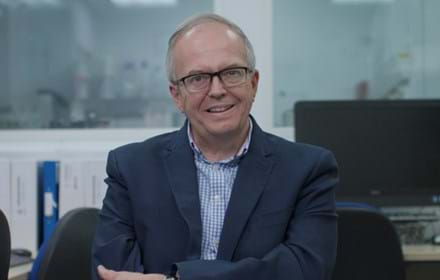
Trials begin for new treatment that could help people living with type 1 diabetes diagnosed with Covid-19
Studies of people with type 1 diabetes in hospitals to explore reducing serious side effects for people with the condition.
This week the first patient will be dosed with a new therapy that could treat people with diabetes suffering from Covid-19 as part of an advanced clinical trial in the UK.
The Medicines and Healthcare products Agency (MHRA) has approved the trial following new preclinical research that suggests a glucose kinase activator (AZD1656) could help people living with type 1 diabetes infected with Covid-19 (coronavirus).
The treatment works by dampening the overactive response of the immune system – especially found in people with type 1 diabetes who may have raised blood glucose levels.
As previously reported, almost one in three of all deaths from coronavirus among people in hospital in England during the Covid-19 pandemic have been associated with diabetes.
A follow-up NHS report confirmed that people living with diabetes are at a significantly increased risk if they get Covid-19 compared to people without the condition.
The breakdown of figures confirmed that people with type 1 diabetes who are diagnosed with Covid-19 are more likely to die from the illness than people with type 2 diabetes.
People in hospital with mild to moderate Covid-19 symptoms will be involved in the trial - and if successful the compound could ultimately be prescribed by a GP for people with type 1 diabetes showing signs of early Covid-19 symptoms.
The treatment set for trial is believed to be unique among the hundreds of Covid-19-related research projects being carried out around the world today.
The trials have been arranged and structured by Professor Sir Chris Evans, through a new vehicle, Excalibur Medicines Ltd, which brought together the scientific intellectual property, international funding and a world leading team to drive the project forward.
Professor Sir Chris Evans, Chairman and CEO of Excalibur Healthcare Services, who is arranging and structuring the trials, said: “All of us supporting this trial recognise this drug has the potential to make a huge difference to people with type 1 diabetes who are unfortunate enough to contract coronavirus (Covid-19) and we foresee a significant impact on the level of fatalities in the future. Treatments such as this could be vital as we are likely to be living with this horrific virus for some time to come.”
The trial, named ARCADIA, with investment from Mubadala of Abu Dhabi, one of the world’s leading sovereign wealth funds in addition to funding secured from the UK Government through the UKRI / Innovate UK programme. This enables the trial to go ahead at speed in 150 patients over a 4-month timeframe at multiple sites in the UK.
St George Street, a UK-based biomedical research charity will lead the clinical trial.
Professor John Martin, Chairman of St George Street and Principal Investigator on the grant awarded by UKRI, said: “Novel research thinking in an interdisciplinary group combined with the drive of the charity and the excellent relationship we have with Astra Zeneca have produced the potential for a great therapeutic leap. This also has potential for non-diabetic patients with Covid-19.”
David Tapolczay, CEO St George Street, said: “Given the current crisis, we have paused all our current research programmes to focus totally on this clinical trial and evaluate this potentially life-saving new drug. Our charity was set up to accelerate the delivery of treatments to patients and this ethos is needed now more than ever before. We want to do everything in our power to ensure patients recover from this terrible virus.”
Call to action - How you can support DRWF during this time
Sarah Tutton, Chief Executive of DRWF, said: “Research is the only way to find new treatments and a cure for diabetes. We have multi-year grant awards in place right now which we must do our utmost to honour and we must be able to react to ongoing applications that we receive for research work that could truly make a difference to the lives of people with diabetes.
“We exist on voluntary donations and fundraised income and like most charities, Covid-19 has had a huge impact on our ability to raise the funds we need. We expect the months ahead will be just as challenging, and sadly this may have an impact on our ability to fund the volume and value of research work that could fuel the next big breakthrough.
“Charities need us, as we need them, more than ever before. Our supporters enable us to keep our research funding on track meaning that the diabetes research community has funds available to find the cure that could transform the lives of millions. We can’t thank our supporters enough for their continued support during these challenging times.”
Read Lockdown guidance for staying home and safe for people living with diabetes during Covid-19 pandemic
Read How people with diabetes could become more ill if diagnosed with Covid-19
DRWF operations during the Covid-19 health crisis
The DRWF team is working remotely. Covid-19 guidance, particularly where it aligns or impacts with diabetes guidance, is shared as quickly as possible through the DRWF website and social media channels with the aim of making it as easy to understand as possible and a reliable source of latest news.
Further reports to follow – visit DRWF news page
Support DRWF by making a donation here
Find out more about DRWF-funded research here
Find out more about DRWF fundraising here
For latest update follow DRWF on Facebook, Instagram and Twitter
To receive the charity’s latest bulletins as they become available, please sign up here
Read DRWF diabetes information leaflets here
Join the Diabetes Wellness Network here
Recent News


